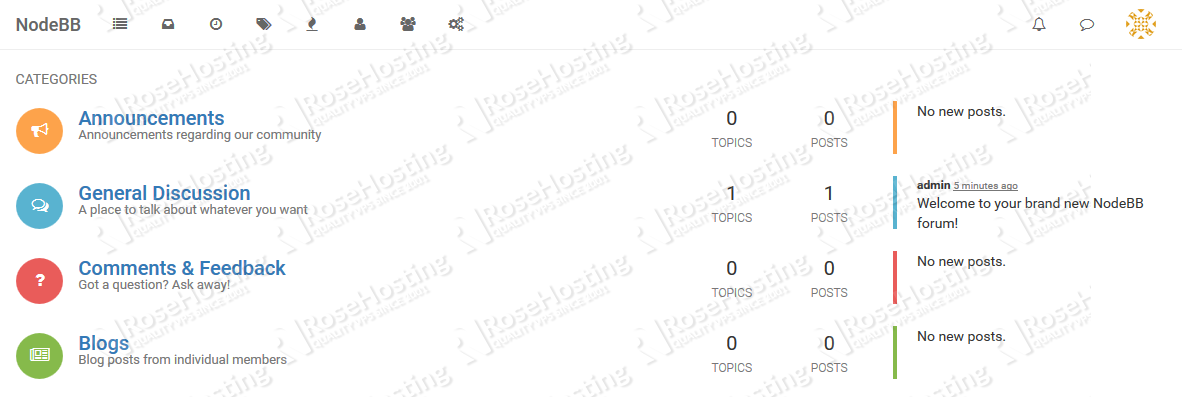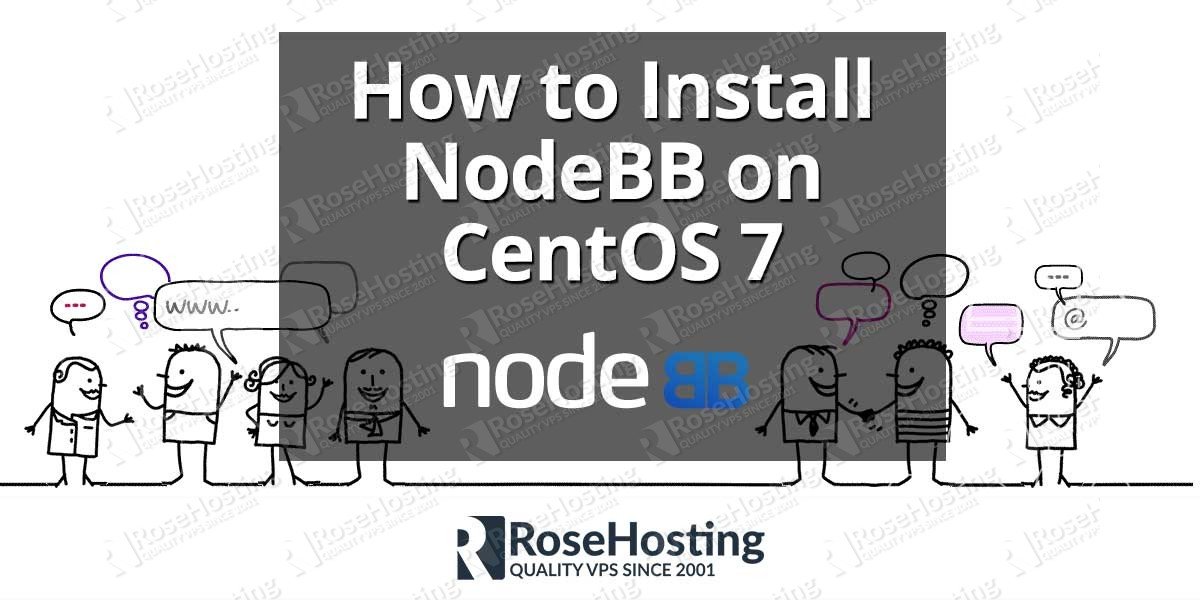We’ll show you how to install NodeBB on a CentOS 7 VPS. NodeBB is an open source forum software for the Node.js platform that is free and easy to use. It is great for powering any kind of community forums, discussion or bulletin boards. NodeBB utilizes web sockets for instant interactions and real-time notifications.
Table of Contents
1. Update OS Packages
The first step before beginning the actual installation of NodeBB is to make sure your OS packages are up to date:
yum clean all yum update
2. Install EPEL
Install the EPEL package using the following command:
yum install epel-release
3. Install Development Tools
Then, install the ‘Development Tools’:
yum groupinstall "Development Tools"
The ‘Development tools’ are a yum group, which is a predefined bundle of software (GCC, C/C++ compilers, make etc.) that can be installed at once, instead of having to install each application separately. The Development tools are mainly used to allow a user build and compile software from source code etc.
4. Install Node.js
Install nodejs and other required packages:
yum install nodejs git redis npm nginx
yum install libicu-devel
5. Start Redis
Start the redis service:
systemctl start redis
Pull down the latest NodeBB files to a directory on your server:
mkdir -p /opt/forum/ cd /opt/forum/ git clone -b v0.8.x https://github.com/NodeBB/NodeBB nodebb
6. Install NodeBB Required Dependencies
Use ‘npm’ to install required dependencies to run the NodeBB forum software:
cd nodebb npm install node-bcrypt -g npm install
If you receive an error that there is no node-gyp module available, run the following commands to fix the problem:
npm install node-gyp -g npm cache clean rm -rf node_modules npm install
7. Setup and Configure NodeBB
Run the following command to start the setup and configure NodeBB:
./nodebb setup
You will have to answer a few questions:
URL of NodeBB: http://localhost:4567 Please enter a NodeBB secret (a741f18e-ce20-44ca-860d-a60c1bab136f) 'enter' Which database to use (redis) 'enter' Host IP or address of your Redis instance (127.0.0.1) 'enter' Host port of your Redis instance (6379) 'enter' Password of your Redis database 'enter your database password here' Which database to use (0..n) (0) 'enter' Administrator username 'admin' Administrator email address 'admin@yourdomain.com' Password 'enter your admin password here' Confirm Password 'enter your admin password here'
Once the NodeBB setup is complete, create a new nginx configuration file for your domain:
vi /etc/nginx/conf.d/yourdomain.com.conf
Add the following lines:
server {
listen 80;
server_name yourdomain.com;
location / {
proxy_pass http://localhost:4567/;
proxy_set_header Host $host;
proxy_set_header X-Real-IP $remote_addr;
proxy_set_header X-Forwarded-For $proxy_add_x_forwarded_for;
proxy_set_header X-Forwarded-Proto $scheme;
proxy_redirect off;
proxy_buffering off;
proxy_http_version 1.1;
proxy_set_header Upgrade $http_upgrade;
proxy_set_header Connection "upgrade";
}
}
8. Restart Nginx Server
Restart the nginx service for the changes to take effect:
systemctl restart nginx
Run ‘./nodebb start’ to manually start your NodeBB server:
cd /opt/forum/nodebb/ ./nodebb start
That is it.The NodeBB forum installation is complete.
Open http://yourdomain.com in your favorite browser, then log in to the administrator back-end and configure the NodeBB forum according to your needs.

PS. If you liked this post, on how to Install NodeBB on CentOS 7, please share it with your friends on the social networks using the buttons on the left or simply leave a reply below. Thanks.
